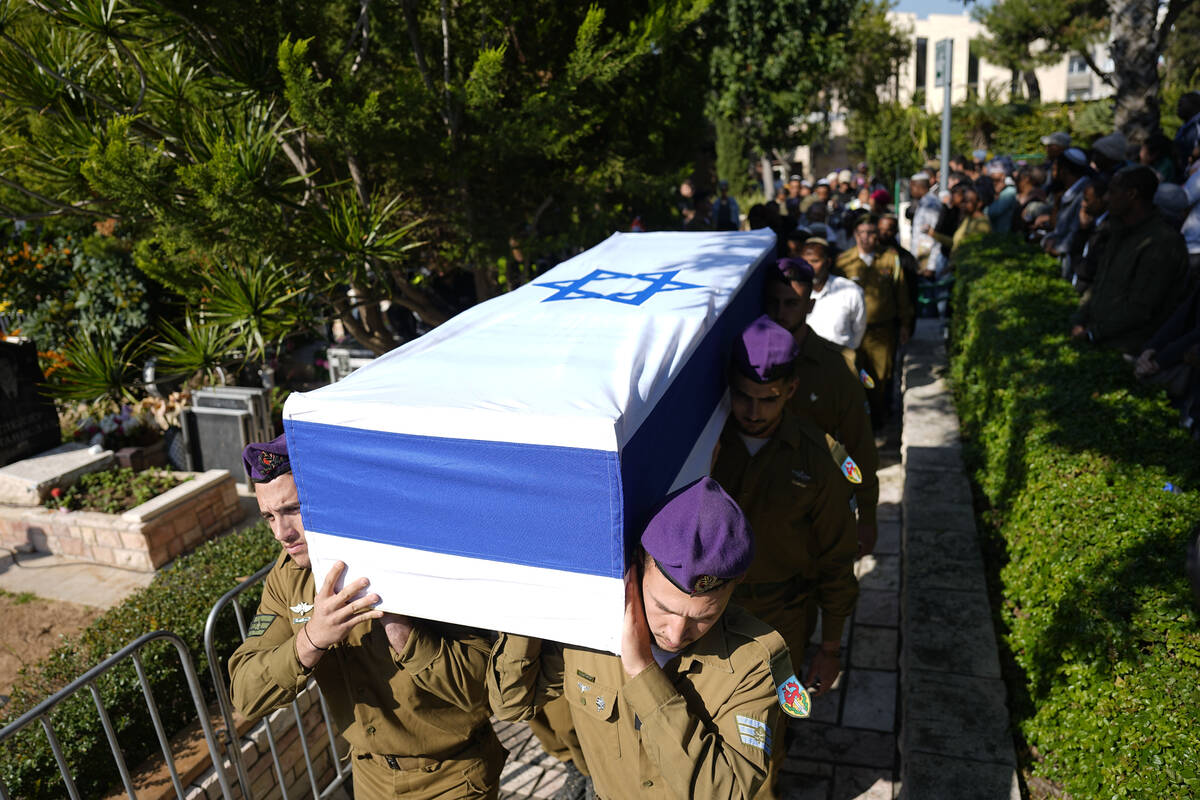Israel starts preparations to expand ground operation

RAFAH, Gaza Strip — Nearly five months into the war, preparations are underway for Israel to expand its ground operation into Rafah, Gaza’s southernmost town along the border with Egypt.
Early Monday, Israeli Prime Minister Benjamin Netanyahu’s office said the army had presented to the War Cabinet its operational plan for Rafah as well as plans to evacuate civilians from the battle zones. It gave no further details.
The situation in Rafah has sparked global concern and Israel’s allies have warned that it must protect civilians in its battle against Hamas.
Also Monday, Palestinian Prime Minister Mohammed Shtayyeh said he was submitting his government’s resignation. The move, which still must be accepted by President Mahmoud Abbas, could open the door to U.S.-backed reforms in the Palestinian Authority, which the U.S. wants to rule postwar Gaza but in a revitalized shape.
Human Rights Watch said Israel was not adhering to the U.N. top court’s order on aid provision, citing a 30 percent drop in the daily average number of aid trucks entering Gaza in the weeks following the court’s ruling. It said Israel was not adequately facilitating fuel deliveries to northern Gaza and blamed Israel for blocking aid from reaching the north, where the World Food Program said last week it was forced to suspend aid deliveries because of increasing chaos in the isolated part of the territory.
Echoing Human Rights Watch, the Association of International Development Agencies, a coalition of over 70 humanitarian organizations working in Gaza and the West Bank, said aid deliveries have slowed since the court’s ruling, with almost no aid reaching areas in Gaza north of Rafah.
Under the orders from the U.N. court in The Hague, Israel must submit a report on what it is doing to adhere to the measures within a month. While Monday marked a month since the court’s orders were issued, it was not immediately clear whether Israel had handed in such a report. The Israeli Foreign Ministry had no immediate comment.
Israel denies it is restricting the entry of aid and has instead blamed humanitarian organizations operating inside Gaza, saying hundreds of trucks filled with aid sit idle on the Palestinian side of the main crossing. The U.N. says it can’t always reach the trucks at the crossing because it is at times too dangerous.
Netanyahu’s office also said Monday the War Cabinet had approved a plan to deliver humanitarian aid safely into Gaza in a way that would “prevent the cases of looting.” It did not disclose further details.
The war launched after Hamas-led terrorists rampaged across southern Israel, killing 1,200 people, mostly civilians, and took roughly 250 people hostage.
Nearly 30,000 people have been killed in Gaza, according to the Hamas-run Health Ministry in Gaza which does not distinguish in its count between fighters and noncombatants. Israel says it has killed 10,000 terrorists.
Israel said that 245 trucks of aid entered Gaza on Sunday.
But Human Rights Watch, citing U.N. figures, said that between Jan. 27 and Feb. 21, the daily average of trucks entering stood at 93, compared to 147 trucks a day in the three weeks before the world court’s ruling. The daily average dropped further, to 57, between Feb. 9 and 21, the figures showed. Aid groups say deliveries continue to be hobbled by security issues.
United Nations agencies and aid groups say the hostilities, the Israeli military’s refusal to facilitate deliveries and the breakdown of order inside Gaza make it increasingly difficult to get aid to much of the coastal enclave. In some cases, crowds of desperate Palestinians have surrounded delivery trucks and stripped the supplies off them.
The U.N. has called on Israel to open more crossings, including in the north, and to improve the coordination process.